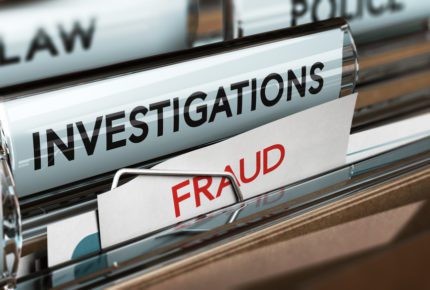

If you or a loved one is facing an initial allegation that could lead to a director disqualification, you are probably worrying about the road ahead and feeling eager to get started on your defence. Conduct leading to disqualification is treated very seriously by English courts, so promptly appointing an experienced criminal defence solicitor can be pivotal to the outcome of your case. This article looks at what happens to those facing a director disqualification for the first time and covers the meaning of director disqualification, some examples of activities that might lead to disqualification, penalty risks for first-timers, and imprisonment prospects. We also outline how to get in touch with our team for more help.
What is a director disqualification?
Director disqualification is a civil sanction under the Company Directors Disqualification Act 1986. It prohibits those deemed unfit from running companies for a specified period of time.
The Act empowers courts to make disqualification orders against directors convicted of corporate offences like fraudulent trading or breaching competition law. Orders can also be made for director misconduct, repeated company failures, and breaching company law obligations.
To obtain a disqualification order, the following must generally be established:
- The defendant was a director of a company that became insolvent, breached legal obligations, or they were personally guilty of misconduct.
- Their conduct as a director makes them unfit to be involved in managing a company.
- It is in the public interest to disqualify them from being a director.
The maximum period of disqualification is 15 years. Proceedings are usually initiated by the Insolvency Service and heard in the High Court or County Court. The length of disqualification depends on factors like the nature of the conduct, previous disqualifications, and risk to the public.
What are some examples of activities that can lead to director disqualification?
Examples of activities that can lead to director disqualification include:
- Repeatedly forming companies that then become insolvent, indicating lack of commercial ambition and propriety.
- Causing companies to continually trade while insolvent instead of filing for administration or liquidation.
- Fraudulent trading through actions like inflating sales figures, falsifying accounts, or misappropriation of assets.
- Non-payment of taxes like VAT and PAYE owed to tax authorities.
- Breaching fiduciary duties through self-dealing or negligence.
- Failing to keep proper company records and accounts.
- Partaking in ‘phoenixing’ – liquidating companies to avoid liabilities and then reforming.
- Obstructing insolvency practitioners or regulators in their investigations.
- Breaking competition law through cartels, abuse of dominance, etc.
- Contravening directors’ loan regulations such as not seeking shareholder approval.
- Failing to file documents, returns, and resolutions as required by law.
- Providing misleading information to creditors, shareholders, regulators, and fellow directors.
- Letting disqualified individuals control companies as shadow directors.
What happens if you are suspected of committing activities that can lead to director disqualification in the UK?
If you are a company director in the UK and engage in certain conduct, you may face investigation and potential director disqualification proceedings under the Company Directors Disqualification Act 1986.
Here’s a general outline of what could happen:
- Initial investigation – if disqualifiable conduct is suspected, the Insolvency Service will start an investigation. This may involve examining company records, financial statements, and other evidence indicating misconduct or unfit behaviour. You may be interviewed under caution. Having legal representation is advisable.
- Disqualification proceedings – the Insolvency Service may apply to court for a disqualification order against you. Even if you agree to disqualification, court approval is required.
- Court process – the proceedings may be heard in the High Court or County Court. You can present a defence against disqualification.
- Disqualification order – if the court finds unfitness proven on the balance of probabilities, you will be disqualified from acting as a director for a period up to 15 years.
- Sentencing – if your conduct also amounted to a criminal offence like fraudulent trading, you may face additional penalties like fines or imprisonment.
Director disqualification proceedings are serious affairs and are even more so when a potential prison sentence may also be levied. Get in touch with an experienced director disqualification solicitor at once if you are facing such proceedings.
What is a director disqualification sentence in the UK?
The Company Directors Disqualification Act 1986 gives courts the power to disqualify company directors for two to 15 years if they are found unfit to operate a business. As mentioned, common grounds include convictions for fraudulent trading, money laundering, misfeasance/misconduct, repeated breaches of company law, or serious failures leading to insolvency – all of which are serious enough to warrant severe penalties in court.
Aggravating factors like large scale fraud, multiple victims, abuse of position, or previous disqualifications can lengthen the ban. Mitigating factors may reduce it, but courts have limited discretion once unfitness is established. The Insolvency Service often pursues disqualifications on the public’s behalf.
In addition to being barred from directorships, a disqualified person cannot directly or indirectly control a company without leave of the court. Breaching a disqualification order is a criminal offence carrying up to two years’ imprisonment and/or an unlimited fine.
Are there any defences to director disqualification activities?
There are several potential defences that can be raised in response to allegations of engaging in activities leading to director disqualification:
- Lack of intent – the prosecution must prove that you had dishonest intent or willfully engaged in activities that could lead to director disqualification. If you can demonstrate that you had an honest belief or made a mistake and lacked the intention to deceive or breach your duties as a director, this could provide a defence.
- Absence of misconduct – if you can show that your actions were not misconduct or did not constitute a breach of your directorial duties, this may serve as a defence. You must prove that your actions were within the scope of your authority and in line with your responsibilities as a director.
- Procedural errors – if there were procedural errors in the investigation or in bringing the disqualification proceedings, it may be possible to have the case dismissed on procedural grounds. This defence focuses on any irregularities or violations of proper procedures that may have compromised the fairness of the proceedings.
- Insufficient evidence – any good lawyer should assess the strength of the evidence presented by the prosecution, looking for inconsistencies, unreliable witnesses, or gaps in the evidence chain.
- Good faith and reasonable care – if you can demonstrate that you acted in good faith and exercised reasonable care, skill, and diligence in your role as a director, this may provide a defence. It is crucial to show that you made decisions based on informed judgement and took appropriate steps to fulfil your responsibilities.
- Misinterpretation or honest mistake – if you can argue that you misinterpreted legal requirements or made an honest mistake in your actions as a director, this may serve as a defence. Any errors must not have been deliberate.
Remember that engaging in activities leading to director disqualification is a serious matter that can have significant legal and professional consequences. Legal advice is critical if you intend to formulate a strong defence.
Will I go to prison if it is my first time committing a director disqualification offence?
Predicting whether activities that lead to a first time director disqualification offence could also result in imprisonment is difficult, as the courts will weigh numerous factors in reaching a sentencing decision and it depends what other crimes were committed in the lead up to that director disqualification. In serious fraud cases, for example, you may receive a director disqualification as well as a prison sentence for fraud, even if it is your first time committing fraud.
The seriousness and circumstances of the conduct leading to being declared unfit as a director is crucial – deliberate or reckless acts are viewed less sympathetically than incompetence or technical breaches. The harm caused to the company, shareholders, creditors and the public interest will also be assessed, with greater harm increasing the likelihood of a custodial sentence.
Previous good character and compliance with companies law will count in a first-time offender’s favour when arguing against prison. Demonstrating remorse, cooperating with investigators, and attempting to make amends for the issues caused are important mitigating factors that skilled legal advocates can present to further reduce imprisonment risks.
While director disqualification itself is a civil process, it often follows on from serious criminal wrongdoing. Those facing disqualification proceedings should obtain experienced legal advice to understand prospects of avoiding imprisonment based on precedents for similar case circumstances.
Where to get further help
If you, a colleague, or another person you care about is facing allegations or proceedings related to director disqualification and potential related criminal offences, specialist legal advice can make a major difference from the outset. And, for first timers especially, disqualification can potentially be prevented in some cases. Contact the experienced team at Stuart Miller Solicitors today for a complimentary consultation.
OUR COMMITMENTS TO YOU:
-
Responsive
A legal expert will consult you within 24 hours of making an enquiry.
-
Empathetic
We will always treat you with trust, understanding and respect.
-
Specialised
Your case will be handled by an expert who specialises in your type of offence.
-
Proactive
We will take early action to end proceedings as soon as it is practically and legally possible to do so.
-
Engaged
You will be kept updated on your case at all times. We will provide a named contact available to answer your questions.
-
Caring
We understand this is a difficult and stressful time for you and your family. Our team will support you every step of the way.
-
Tenacious
We will never give up on your case. We fight tirelessly to get you the best possible outcome.
